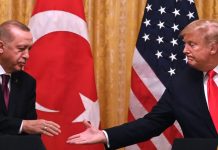In the wake of India and China reaching a five-point consensus, including the disengagement of both their troops from the contested Himalayan border, where has Pakistan stood in view of the entire conflict?
SAAB, The Makers of Gripen Jets To Equip German Navy With Anti-Ship Missiles
Pakistan’s silence on the ever-escalating tensions between the militaries of its iron brother China and its traditional foe India has been very evident.
Apart from the unprovoked ceasefire violations, the last of it being throughout the day along the Line of Control (LoC) in Poonch district of India’s northern Jammu and Kashmir state on Thursday (September 10), Pakistan has refused to voice their opinion on the Indo-China military stand-off, which began with the Galwan Valley clash in Eastern Ladakh.
While Pakistan has kept a keen eye on the developments of the conflict, it had earlier slammed New Delhi for its active role in the “bloody clash”. Pakistan’s Foreign Minister Shah Mahmood Qureshi, while commenting on the border row, had stated
“China tried its best to resolve the (border) issue amicably, and through talks. But India did not take it with the same spirit, and continued constructions in the disputed region, which led to a bloody clash,”
Qureshi also supported Beijing’s stand on its border dispute with India, saying – “The 3,500-kilometre border of Ladakh and Tibet is a disputed region. If India thinks it can devour this area, then perhaps, it would not be acceptable to China.”
As per experts, the Pakistan government believes India’s decision to abolish Jammu and Kashmir’s special status last year, was the basis of the dispute between India and China, with Prime Minister Narendra Modi looking to do the same in Ladakh, against China’s wishes.
In August 2019, Modi shook the political landscape of the region by taking away Jammu and Kashmir’s status as India’s only Muslim majority state by splitting it into two federally-controlled territories of Jammu and Kashmir and Ladakh, a decision which was labelled “unacceptable” by Beijing.
“We urge India to be cautious in its words and deeds on the border issue, strictly abide by the relevant agreements reached between the two sides, and avoid taking actions that further complicate the border issue,” said a statement published on the website of the Chinese Foreign Ministry.

According to experts talking to the EurAsian Times, there was a difference in how Pakistan and China handled the Indian decision to revoke Article 370 from Jammu and Kashmir (which also includes Ladakh). ‘I think Pakistan hastily reacted to the decision while China thoughtfully responded’
In recent days, the Indian side has continued to undermine China’s territorial sovereignty by unilaterally amending its domestic laws. This practice is unacceptable and will not produce any effect.”
The statement was hugely supported by Pakistan, and since then China has constantly backed Pakistan on the status of Kashmir, even at the United Nations Security Council.
And Pakistan Muslim League (N) Senator Mushahid Hussain Syed, while speaking to BBC has said that until India decides to resolve the dispute through dialogue, Pakistan will continue to back China.
“Pakistan will side with China on principle. In principle, India is wrong and knowing this, Pakistan will not side with India, but if it can be resolved through dialogue. Otherwise, India desperately needs to reconsider its egoistic policy in the region,” said Syed.
Earlier, a US intelligence report had suggested that Pakistan might have had a direct hand in providing intelligence to China regarding the positioning of Indian troops, before the Galwan Valley clash in Ladakh.
On which, Vikram Singh, a former top official at the Pentagon for South and Southeast Asian affairs, now a senior adviser at the U.S. Institute of Peace’s Asia Center, said – “If the Chinese are bringing Pakistan more ‘behind the curtain,’ in terms of intelligence and military cooperation, it will be tailored to their common interests like confronting India over territorial disputes.”
The extent of intelligence cooperation between the two nations against India is still unknown, with the Pakistani side is staying cautious regarding sharing its intelligence in the past.
However, Tara Kartha, former director of the National Security Council Secretariat stated that it might have been possible that Beijing was able to overcome these reservations, as it gains a steady entrance into the Pakistani establishment at the highest levels, as well as on the ground.
“This Pakistan-China intelligence cooperation poses a challenge for India because it marks an alarming accretion in a relationship in which Pakistan is beginning to resemble nothing more than a colony,” she added.




